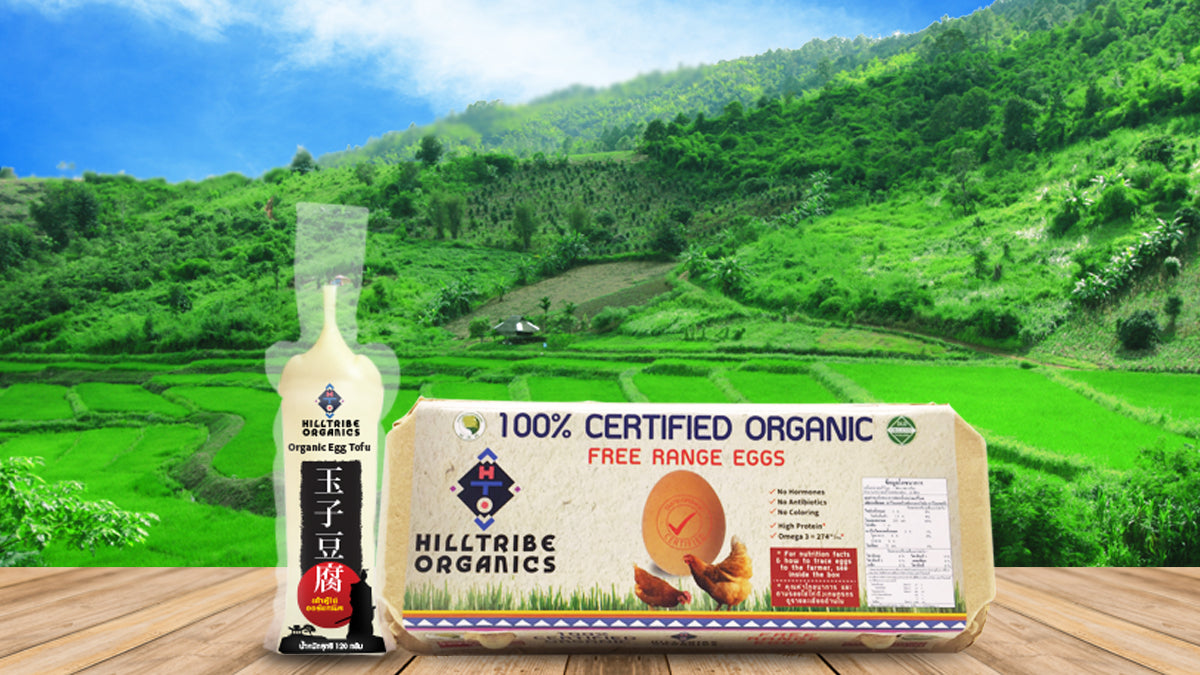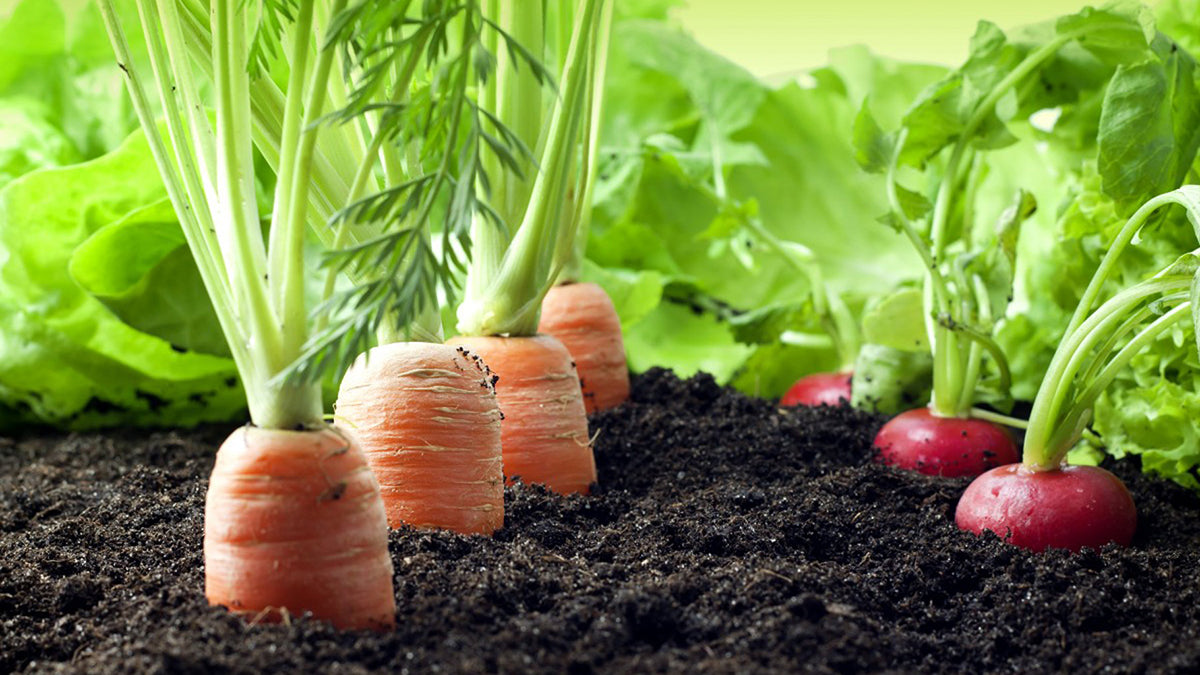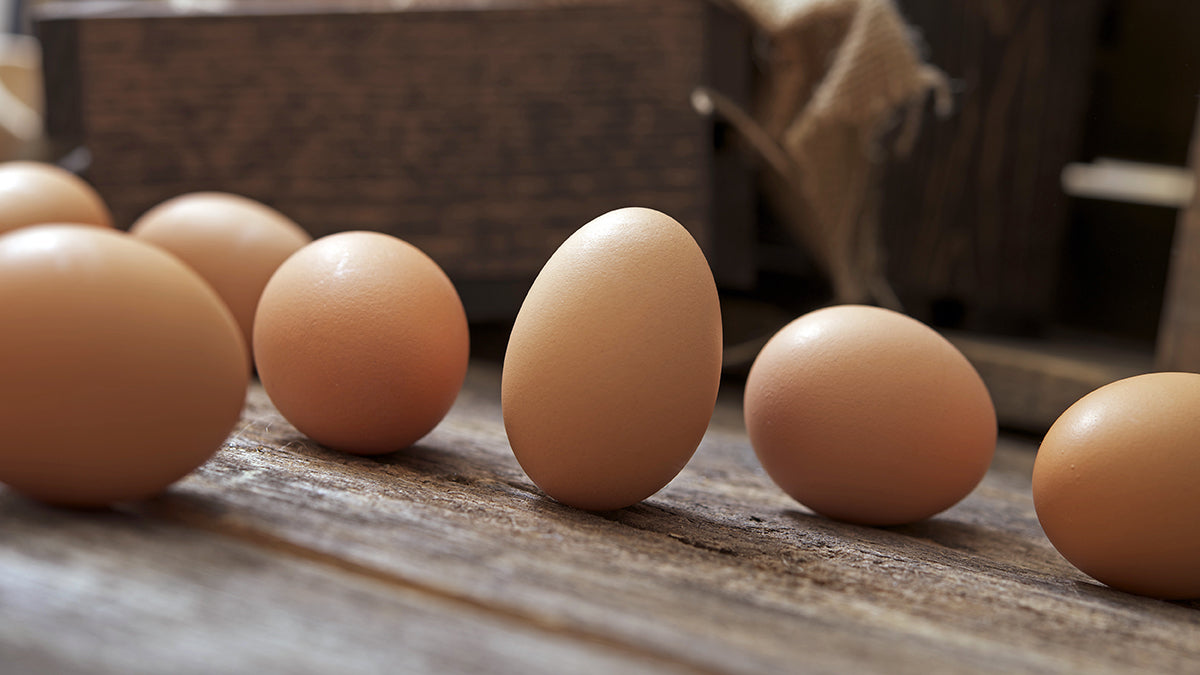Get the Facts Why Consumers Should Buy Organic Food
Organic food sales are growing, yet the lion's share of the food market is still overwhelmingly controlled by conventional food. One of the best ways to boost sales and build repeat customers is to be prepared with vital facts about organic food that consumers need to know.
The USDA offers basic reading materials for consumers about organics, but it may be a little too much info for some consumers. Thus, it's better to create your own personalized informational packet. You can post facts about organic food at your farm or business website or create an easy to skim organic facts brochure.
Below are some ready-to-go facts about organic food that will appeal to customers, along with some links to more information and research about organics. You don't need to use all the facts. Simply choose which type of facts will appeal to your specific customers.
01 Organic Food is Healthy and Safe

You may hear, "Organic food isn't more nutritious - don't waste your money." However, The Soil Association notes that an organic diet increases consumption of vitamins, minerals, antioxidants and essential fatty acids.
Health and safety should not be confused with nutrition. While most research can't prove, beyond a doubt that organic food is more nutritious, it is much safer, which may translate to a healthier body, able to absorb healthy nutrients.
Non-organic food often contains harmful hormones and pesticides. Pesticides are poisonous - by nature, they're designed to kill. Pesticides can cause neurological problems, cancer, infertility, nausea, vomiting, diarrhea, allergies and asthma, wheezing, rashes and other skin problems, ADHD, birth defects and more. Logic 101 says don't eat poison, right? Why not go organic and avoid pesticides?
- Pesticides Can Remain in the Human Body for Years
- Health Hazards of Growing Up with Pesticides
- Non-organic Food May Contain Sewage Sludge
02 Organic Food Builds Strong Future Generations
It's comforting to imagine unborn babies protected and safe in the womb, but research by the Environmental Working Group (EWG) shows that chemicals, pesticides in food and other pollutants cross the placenta.
These pesticides and other toxins can create health risks for babies. Many studies link pesticides to low birth weight, birth defects, neurological and behavioral problems, disrupted hormone function, autism, and cancer.
Pesticides and chemicals have also been linked to infertility problems in males and females. When parents-to-be choose organic food, their baby-to-be is exposed to fewer health risks.
03 Organic Food Keeps Our Water Clean
Pesticides and chemicals don't belong in drinking water, lakes or oceans, but right now most of the water on earth is at risk. Surface water runoff from non-organic farms and other non-organic food operations can deposit pesticides into lakes, rivers, and reservoirs.
Companies who dispose of pesticides incorrectly can contaminate soil and drinking water supplies as well. Many pesticides don't break down in water and may remain in the water system for years. Organic food farming methods help to keep water clean plus use less water, thus preserving the earth's water supplies.
04 Organic Food Helps Protect Animals
Wild animals, fish, and birds depend upon healthy plants, streams, rivers, and lakes in their habitat. When pesticides infiltrate animal habitats many creatures suffer.
U.S. policy surrounding organic livestock is not perfect. Organic livestock rules center less on a happy lifestyle and more on how animals are fed and treated medically. Still, research shows that organic livestock is more likely to be treated better than non-organic livestock.
As time goes on, consumer demand for animal welfare is sure to factor into organic certification policy. Buying organic does help animals. You can also look for the Animal Welfare Approved label.
05 Organic Food Results in Less Soil Erosion
Everyone should be worried about soil erosion. A Cornell University study, Soil Erosion: A Food and Environmental Threat, notes that soil erosion promotes flooding and drought. Soil erosion results in excess dust in the air, which blows around causing air pollution.
Worse, according to the Cornell study, this excess dust, "Carries about 20 human infectious disease organisms, including anthrax and tuberculosis." Conservation tillage, cover crops, windbreaks and other sustainable farming methods used on organic farms help control soil erosion. Soil from organic farms is also pesticide-free and won't add pesticides into the air.
06 Organic Food Conserves Fossil Fuels
Conventional agriculture production uses more fossil fuels than organic food production. In fact, one study shows that sustainable farming methods may use 23% to 56% less fossil energy than conventional farming methods.
Buying organic food supports sustainable farming, which in turn preserves non-renewable fossil fuels, saves money spent on energy resources and reduces global warming impacts.
07 Organic Food Offers Outstanding Flavor
Taste is subjective, but you're more likely to get fresher flavor with organic. Organic foods don't contain artificial preservatives, so they sit on the shelf for less time, and consumers get a fresher, better tasting product.
Prepared organic foods are really where taste difference come in. Organic foods don't contain chemical fake flavors, so the true taste of the food shines through. For example, try a taste test between organic and non-organic ketchup - the organic ketchup tastes like fresh tomatoes while the conventional tastes like it was seasoned with fake tomato flavoring.
08 Organic Food is Becoming More Affordable
Many people complain that organic food is too expensive. Organic food can cost more than conventional foods. However, money talks. When people continually purchase organic food it shows consumer support for organics and then companies will try to meet that demand with better, more competitive prices.
The only way to show the government and businesses that people care about quality, affordable organics is to buy quality organics. Your organic purchases now make a difference in the long run. Luckily, for now, organics are becoming more affordable. Plus, there are plenty of ways to save money on organic food, for example, you can use organic coupons or buy more in-season produce.
https://www.thebalance.com/reasons-to-buy-organic-food-2538039




